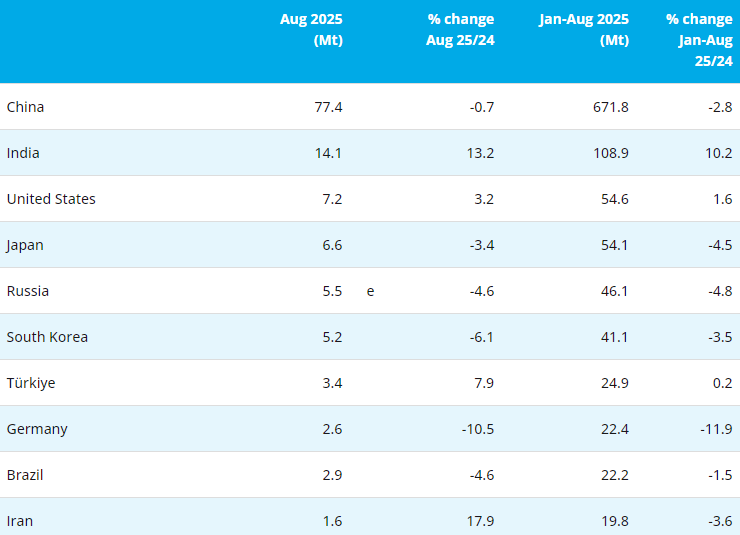[Ferro-Alloys.com]China has cut its harmful air particulates by nearly 40 percent since it imposed a "war against pollution" in 2013, attaining a feat that the United States and Europe only achieved in several decades and recessions, the University of Chicago said in its latest Air Quality Life Index report.
"Although the challenge of reducing air pollution across the world may seem daunting, China is an important beacon of progress," stated the report, which recalled that China allocated "substantial" public resources to combating pollution that reached its highest levels in 2013.
"Since 2013, particulate pollution in China has declined by 39.6 percent, adding about 2 years onto average life expectancy, assuming these reductions are sustained," researchers including Michael Greenstone of the university's Energy Policy Institute said in a report published Tuesday.
In the report's section, "China's war against pollution continues successfully", the researchers analyzed how the strict public policies, as laid out in the National Air Quality Action Plan in late 2013, cut the number of cars on the road in large Chinese cities, reduced iron- and steel-making capacity in industrial sector, while banning new coal plants in the Beijing-Tianjin-Hebei and some other regions.
"Today, seven years after the start of China's 'war against pollution', the impacts are persistent and tangible," they wrote. "Thanks to these, and other, strict pollution policies, China's overall (country level) PM2.5 average is in compliance with the national standard."
The PM2.5 reading is a gauge monitoring small airborne particles measuring 2.5 micrometers or less in diameter, which can penetrate deep into a person's lungs.
China's PM2.5 levels fell from 85 to 38 micrograms per cubic meter in just seven years — a 55 percent drop, according to the report.
Such drastic decline in air pollution will pay off, according to the Air Quality Life Index, or AQLI, which converts air pollution concentrations into their impact on life expectancy.
In Beijing and Shanghai, for instance, the report suggests that the average person could expect to live 4.6 years and 2.2 years longer, respectively, due to the steady decline in pollution since 2013, provided that the reduction is permanent.
To put China's impact into context, the researchers wrote that global average pollution has declined since 2013, and that decline is due "entirely" to China's steep decline in pollution.
In its February report, the researchers noted that it took more than two decades and multiple recessions for the United States to reduce its average air pollution by 40 percent — a feat that China achieved in just seven years while its economy continued to grow "at a good clip".
"While the stubborn nature of the pollution challenge may seem daunting, China's success in reducing pollution is a strong indication of the opportunities that could lie ahead for other nations if they were to impose strong pollution policies — as some are beginning to do," the researchers wrote.
However, slightly more than one-third of China's population still lives in areas where the pollution levels don't comply with the country's own national standard, and using an international lens, Beijing is still three times more polluted than Los Angeles, the most polluted city in the United States, according to the report.
In discussing how China can meet and sustain further pollution reductions, the researchers said that in addition to "command and control" measures to swiftly reduce pollution, China has an opportunity to place more emphasis on market-based approaches, to cut pollution at a lower cost and without intense stakeholder pressure.
Successful approaches included the US sulfur dioxide emissions trading scheme, which reduced pollution by 40 percent between 1980 and 2003, with the program's benefits exceeding its costs by a 40:1 ratio, according to the report.
It pointed out that China's national carbon trading market augurs well for the country's next phase of "war against pollution".
The carbon trading market, introduced in July last year, will be the largest such market in the world upon completion. It positions the country well for the adoption of a particulate pollution and/or sulfur dioxide market, according to the report.CHINA DAILY
Copyright © 2013 Ferro-Alloys.Com. All Rights Reserved. Without permission, any unit and individual shall not copy or reprint!
- [Editor:kangmingfei]



 Save
Save Print
Print Daily News
Daily News Research
Research Magazine
Magazine Company Database
Company Database Customized Database
Customized Database Conferences
Conferences Advertisement
Advertisement Trade
Trade
















Tell Us What You Think